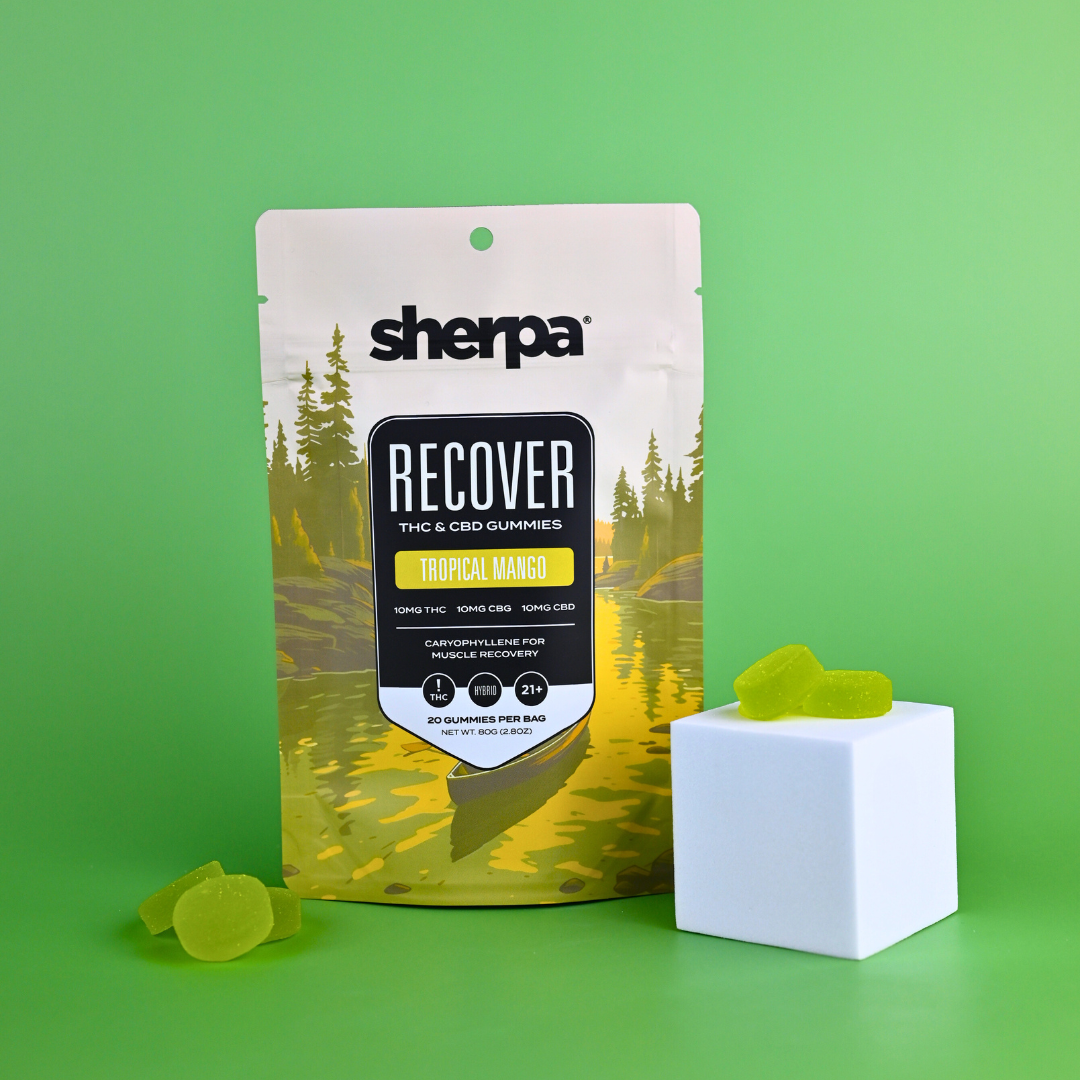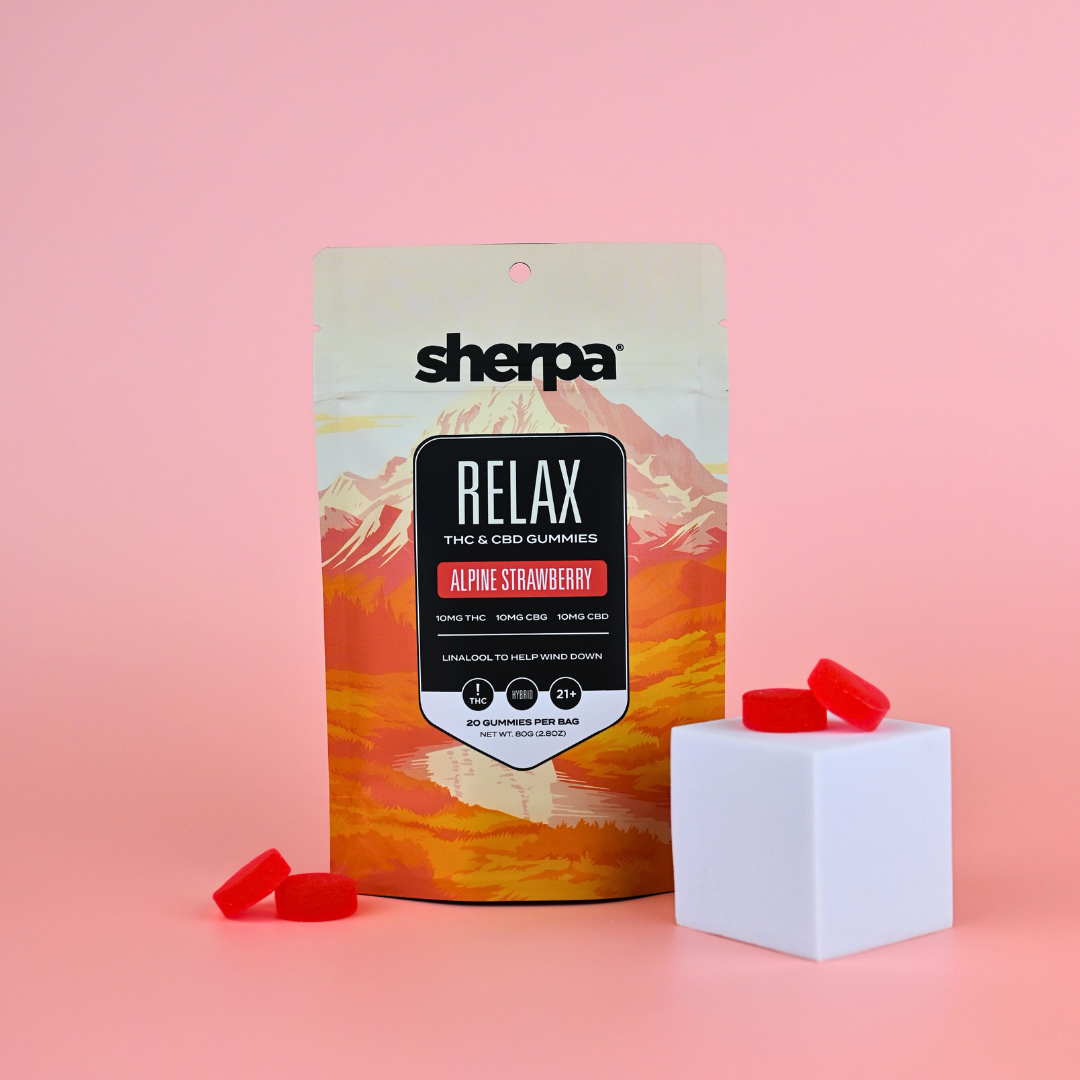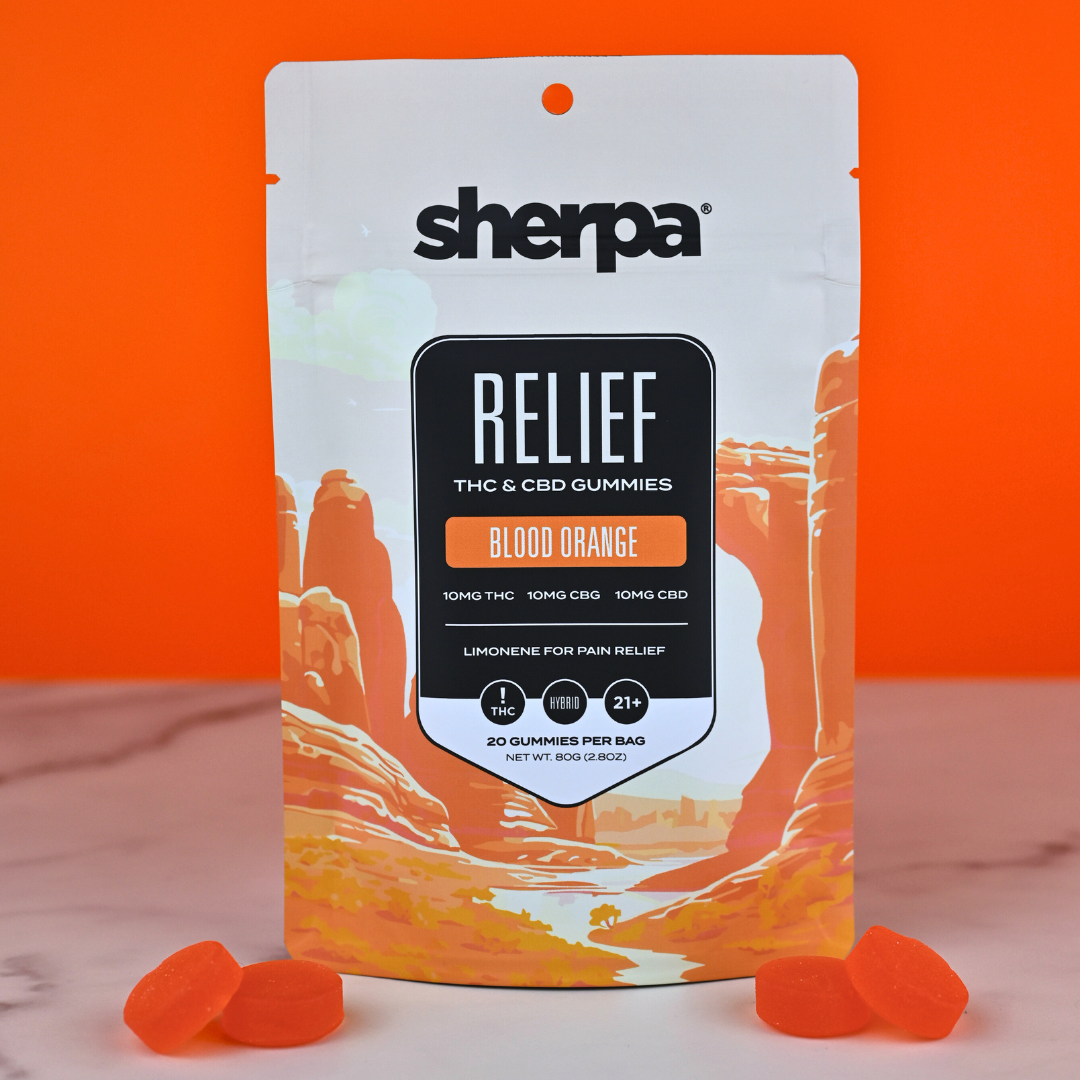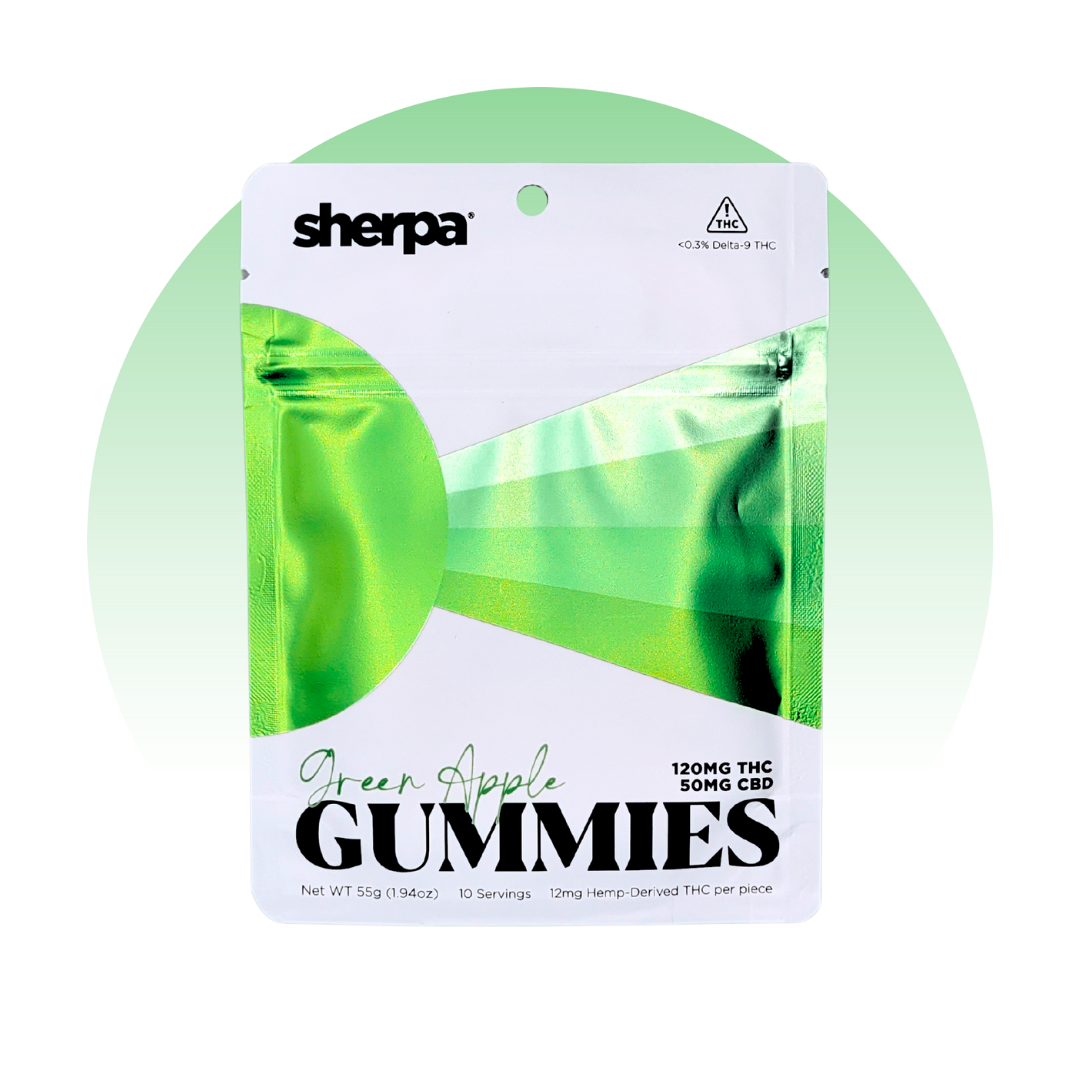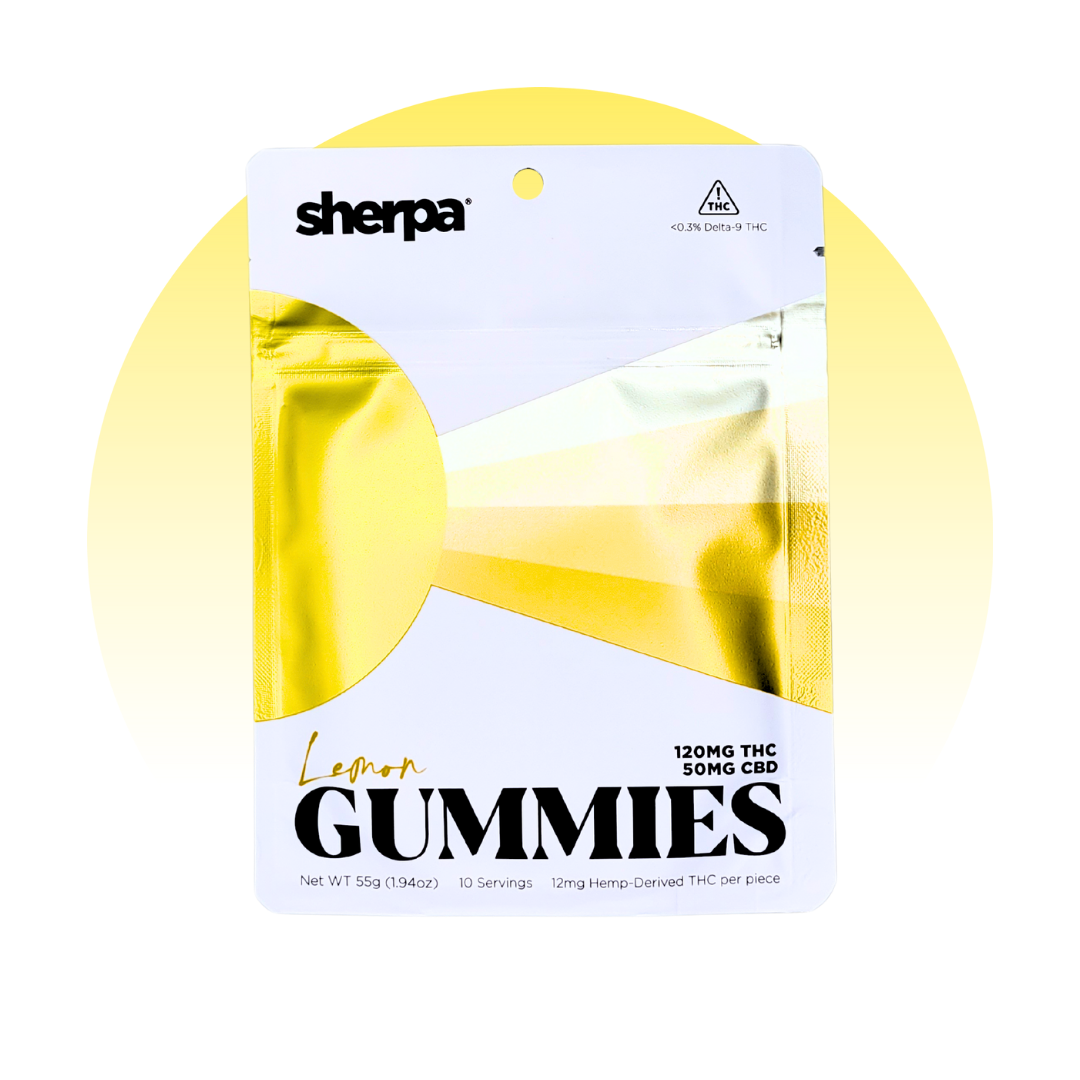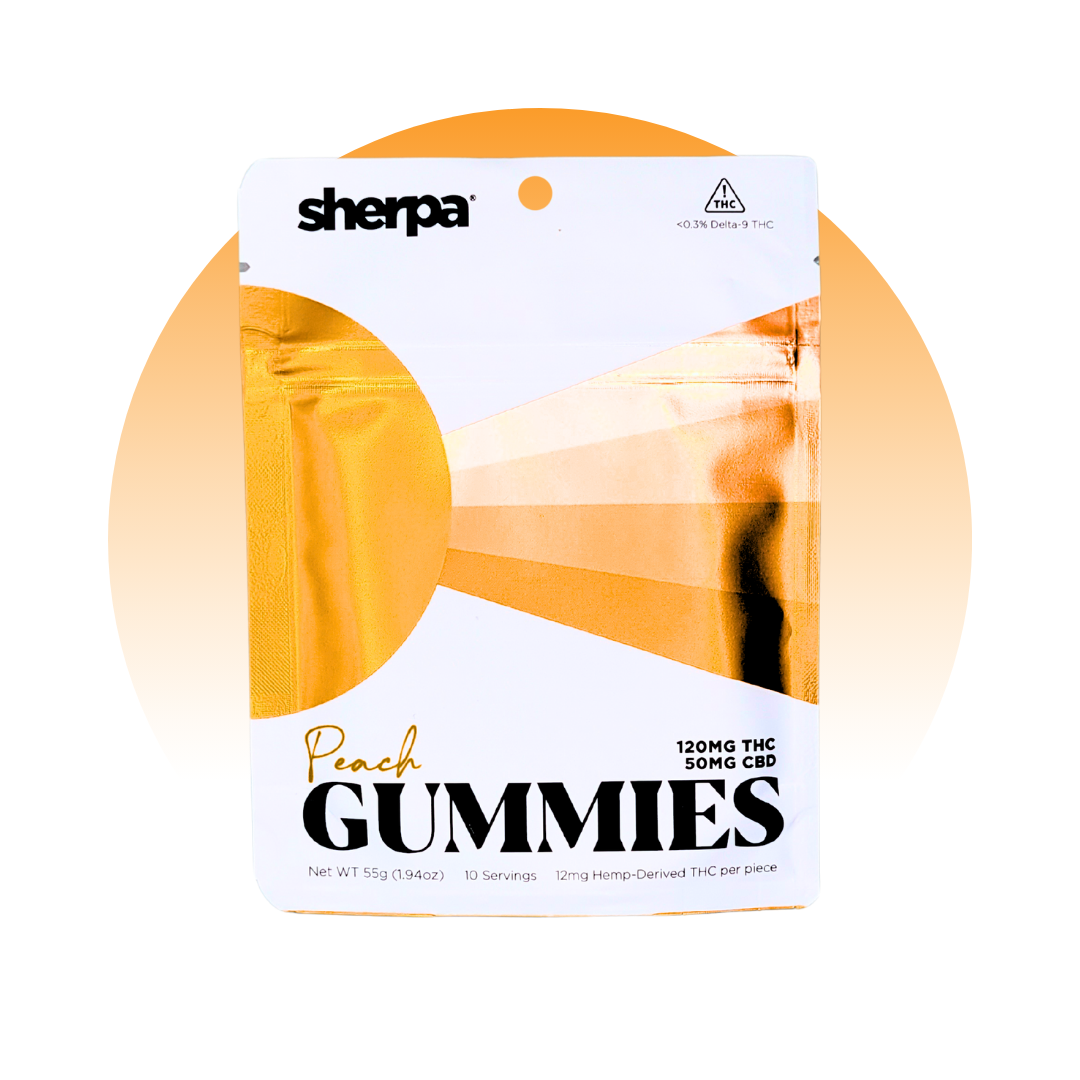
Our Blog
Melatonin vs THC Gummies: Which Sleep Aid Fits Your Night-Time Needs?
Melatonin vs THC Gummies: Which Sleep Aid Fits Your Night-Time Needs?
Falling asleep—and staying asleep—can feel like a nightly battle. Whether it’s racing thoughts, stress, or unpredictable sleep patterns, millions of people are turning to sleep aids in search of relief. Over-the-counter melatonin has become a household staple for many, while hemp-derived THC edibles are quickly gaining traction as a natural, plant-based alternative. But how do you choose between the two?
If you're trying to decide between melatonin vs THC for sleep, this guide will walk you through how each option works, their pros and cons, and how Sherpa supports better rest with clearly labeled, lab-tested products. No hype, no guesswork—just practical information to help you find the best sleep aid for your needs.
Sherpa’s Approach to Sleep Support
Sleep isn’t one-size-fits-all, and neither are the products designed to support it. At Sherpa, we recognize that every person’s relationship with rest is different. That’s why we offer a range of hemp-derived THC edibles formulated to help you relax, unwind, and ease into a natural sleep cycle—without relying on synthetic additives or heavy-handed solutions.
All Sherpa sleep products are made with federally compliant, hemp-derived THC. This means they’re legal in most U.S. states and lab-tested twice for accuracy, safety, and consistency. You’ll find clear labeling on every package, from the cannabinoid breakdown to dosing instructions, so you know exactly what you’re taking before your head hits the pillow.
We don’t just aim for effect—we aim for comfort. Our edibles are vegan, gluten-free, and made with natural ingredients, including organic MCT oil that helps the body absorb THC more effectively. That means fewer surprises, better results, and a smoother night from start to finish.
Whether you need subtle support from a microdose pill or a stronger, longer-lasting solution like our 15mg THC Sour Belts, Sherpa has options for every kind of sleeper. We’re not here to tell you what your sleep journey should look like. We’re here to guide you as you explore what works best for your body, your schedule, and your goals.
How Melatonin Works in the Body
Melatonin is a hormone your body naturally produces to regulate the sleep-wake cycle. As the sun goes down and darkness sets in, melatonin levels rise, signaling to your body that it’s time to wind down. In theory, supplementing with melatonin should reinforce that rhythm—especially if it's been thrown off by jet lag, late-night screen time, or a shift in routine.
But melatonin supplements aren’t always as reliable as they seem. While they’re generally safe for short-term use, they don’t actually make you sleepy. Instead, they shift your body’s internal clock to encourage sleepiness at a different time. This makes melatonin a helpful tool for circadian rhythm adjustment, but not necessarily a solution for general insomnia or anxiety-related sleeplessness.
One of the most common complaints with melatonin is grogginess the next morning. For some users, the hormonal shift lingers well past bedtime, leaving them foggy or sluggish when they wake up. Others find it hard to time their dose—take it too early and you might feel sleepy too soon, too late and you might be lying awake while it slowly kicks in.
There’s also a tolerance factor to consider. Over time, your body may respond less effectively to melatonin, especially if used nightly without addressing the root cause of your sleep challenges. That’s why many people look to natural sleep aids that work on a broader level—relaxing both the mind and body—rather than just manipulating the internal clock.
How THC Affects Sleep
While melatonin adjusts your body’s sleep schedule, THC works in a different way. THC (tetrahydrocannabinol) interacts with your endocannabinoid system—a complex network of receptors in your brain and body that helps regulate stress, mood, appetite, and yes, sleep. By engaging with this system, THC supports a more holistic approach to rest and recovery.
Potential to Reduce Sleep Latency
One of the biggest benefits of THC edibles for sleep is their ability to reduce sleep latency, or the time it takes you to fall asleep. Many users report that a modest dose of THC helps quiet mental chatter, reduce physical tension, and make it easier to transition into a restful state. For those of you who lie awake overthinking or replaying the day, this can be a welcome shift.
Extended Effect Duration (6–8 Hours with Edibles)
Edibles are known for their staying power. When consumed in edible form, THC is metabolized by the liver into a compound called 11-hydroxy-THC. This version is not only more potent, but also longer-lasting than inhaled THC. That’s why many people find edibles helpful for staying asleep through the night—not just falling asleep in the first place.
With Sherpa’s gummies or Rice Krispie Bites, you’re looking at a 6 to 8-hour window of effect. This makes them an excellent fit for people who struggle with mid-night waking or restless sleep cycles. Just be sure to time your dose 60 to 90 minutes before bed to allow for proper digestion and onset.
Added Benefit of Mental and Physical Relaxation
THC doesn’t just work on your sleep cycle—it supports your whole body. Small to moderate doses can promote relaxation, ease muscle tension, and reduce mental overactivity, especially when paired with a calm nighttime routine. While high doses may feel too sedative for some users, lower doses offer a gentle, supportive experience without fogginess or disorientation.
At Sherpa, we emphasize responsible use. Our products are clearly labeled and available in multiple strengths, so you can find the best sleep edibles for your comfort level—whether you're trying microdose THC for rest or looking for a more pronounced effect.
Side Effects and Sensitivities: THC vs. Melatonin
No sleep aid is perfect for everyone. Whether you're considering melatonin or THC edibles, it’s important to understand the potential side effects—especially if you’re sensitive to supplements or have struggled with certain products in the past. Both compounds affect your body differently, and while they’re generally well-tolerated, they do come with some tradeoffs. Knowing what to expect can help you make a more informed decision and avoid surprises down the line.
Melatonin – Grogginess, Vivid Dreams, Tolerance Buildup
For many users, melatonin feels gentle and predictable. But even low doses can occasionally lead to morning grogginess, especially if the timing is off or you’re particularly sensitive to hormone fluctuations. Some people report feeling foggy or lethargic well into the next day, even after a full night’s sleep.
Vivid dreams are another common side effect. While some users enjoy the intense dream recall, others find it jarring—especially if they’re dealing with anxiety or restless sleep to begin with. And because melatonin doesn’t promote relaxation directly, it won’t always help if your sleep problems are caused by stress.
There’s also a risk of tolerance buildup with nightly use. Over time, your body may become less responsive to melatonin, requiring higher doses to achieve the same effect. This can lead to diminishing returns and inconsistent results—something many users find frustrating.
THC – Dry Mouth, Next-Day Drowsiness (at high doses), Psychoactive Effects
THC comes with its own set of side effects, most of which are dose-dependent. The most common is dry mouth, which isn’t harmful but can be annoying. Staying hydrated before and after taking an edible helps minimize this.
Next-day drowsiness can happen if you take a dose that’s too high or too close to bedtime. While most users feel refreshed the next morning, some may wake up groggy—especially if the edible kicked in late or disrupted their sleep cycle. That’s why we always recommend starting low and adjusting slowly.
Because THC is psychoactive, it can also cause mild euphoria or a sense of altered awareness—which can be relaxing for some and unsettling for others. The key is knowing your tolerance and choosing a strength that feels supportive rather than overpowering.
In both cases, a little self-awareness goes a long way. Your ideal sleep aid might not be what works for someone else, and that’s okay. The goal is to find what feels gentle, effective, and sustainable for your lifestyle.
Can You Use THC and Melatonin Together?
With the growing popularity of cannabis wellness products, many brands have begun combining THC and melatonin into single formulas designed to promote sleep. At first glance, the combo seems like a win—one compound to set your internal clock, the other to help you relax. But is it really a better solution?
The answer depends on your body and your preferences. Some people do report improved results when using both, particularly if they have trouble with sleep timing and stress. However, combining these compounds also introduces more variables. If you experience side effects or inconsistent results, it can be hard to pinpoint which ingredient is the cause.
At Sherpa, we recommend starting with THC-only products for better control. With clearly labeled doses and a slower, more natural path to sleep, THC edibles offer the opportunity to observe how your body responds without stacking effects. You’ll know exactly what’s working—and how much you need to feel results.
If you’re interested in layering melatonin into your routine, do so slowly and mindfully. Try each compound on its own first, monitor how you feel, and give your body time to adjust. As always, consult with a healthcare provider if you’re taking other medications or managing a chronic condition.
Sleep is deeply personal, and the best outcomes come from a thoughtful, step-by-step approach—not a rush to combine ingredients that may not be necessary.
Choosing the Best Sleep Aid for You
Finding the right solution for sleep takes time, but that’s part of the process. Rather than aiming for the strongest effect possible, start by thinking about your goals: Do you want help falling asleep quickly? Staying asleep longer? Waking up more refreshed? The answer to those questions will help you choose the format, strength, and ingredients that suit your body best.
If you're new to sleep aids, Sherpa’s THC edibles may offer a gentler and more customizable starting point than melatonin. Unlike hormone-based supplements, THC works by supporting your natural relaxation process—not overriding it. That means fewer timing issues, a reduced risk of grogginess, and a greater chance of finding a rhythm that actually works.
Start with low doses and build slowly. Sherpa offers several sleep-friendly options, including:
- 5mg Night Time Gummies – Midnight Grape or Electric Blue Razz flavors, each featuring 5 mg THC, 10 mg CBD, 10 mg CBN, and relaxing terpenes like myrcene for a serene bedtime experience
- 2mg Microdose Pills – Ideal for subtle relaxation and calming nighttime routines without intense effects.
- 12mg THC Gummies – A moderate, balanced option for users who want noticeable relief with a smooth onset.
- 15mg THC Sour Belts – Slightly stronger, great for winding down after a long day or transitioning into deeper rest.
Whichever product you choose, timing and routine matter. Take your edible 60 to 90 minutes before bed, pair it with a light snack, and create an environment that supports rest—dim lights, no screens, and minimal stimulation. These habits reinforce your body’s natural rhythm and help make your chosen product more effective.
Ready to try a better path to sleep? Explore Sherpa’s lab-tested, hemp-derived THC sleep products and find the one that fits your needs—gently, naturally, and with confidence.
